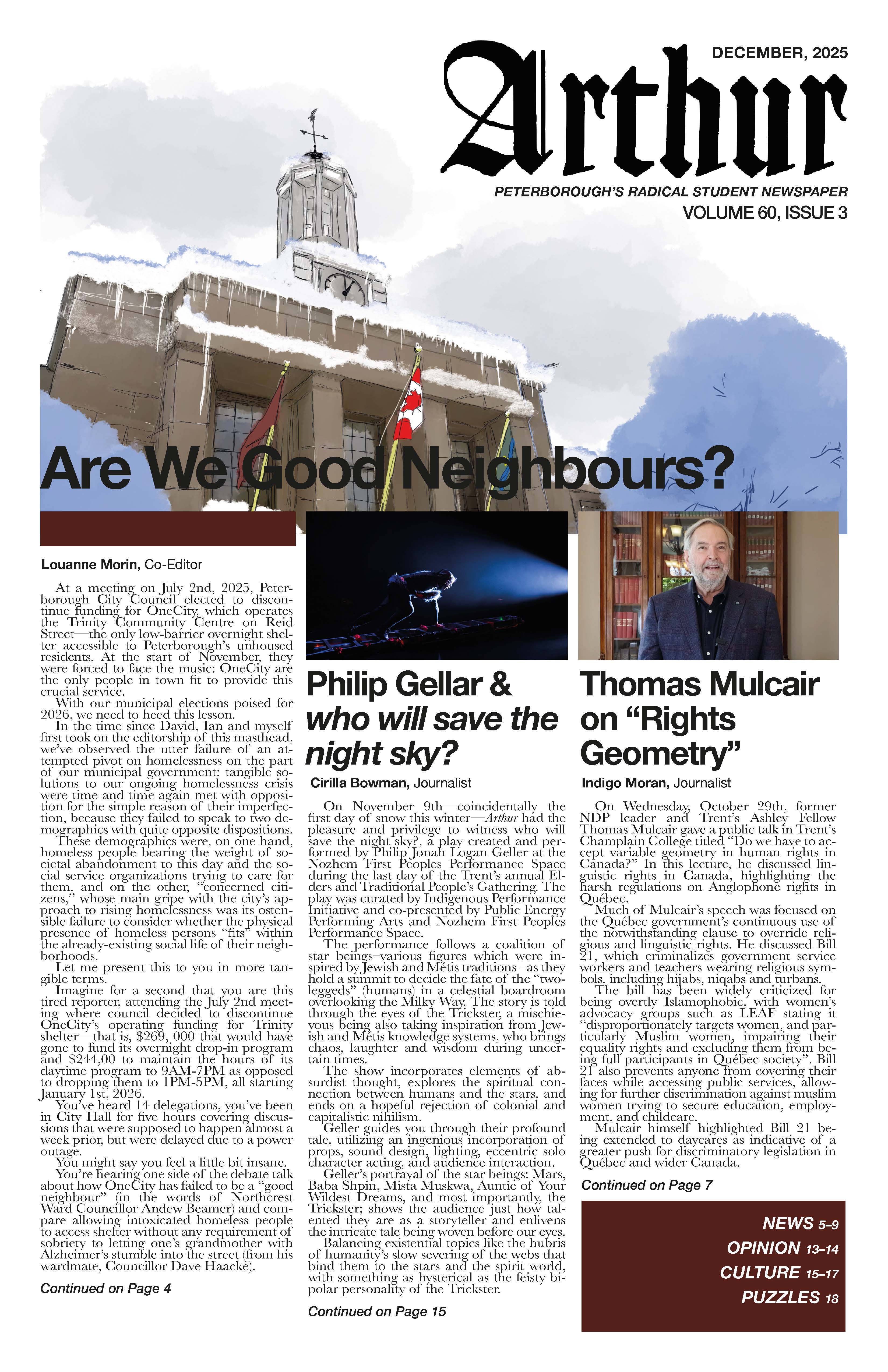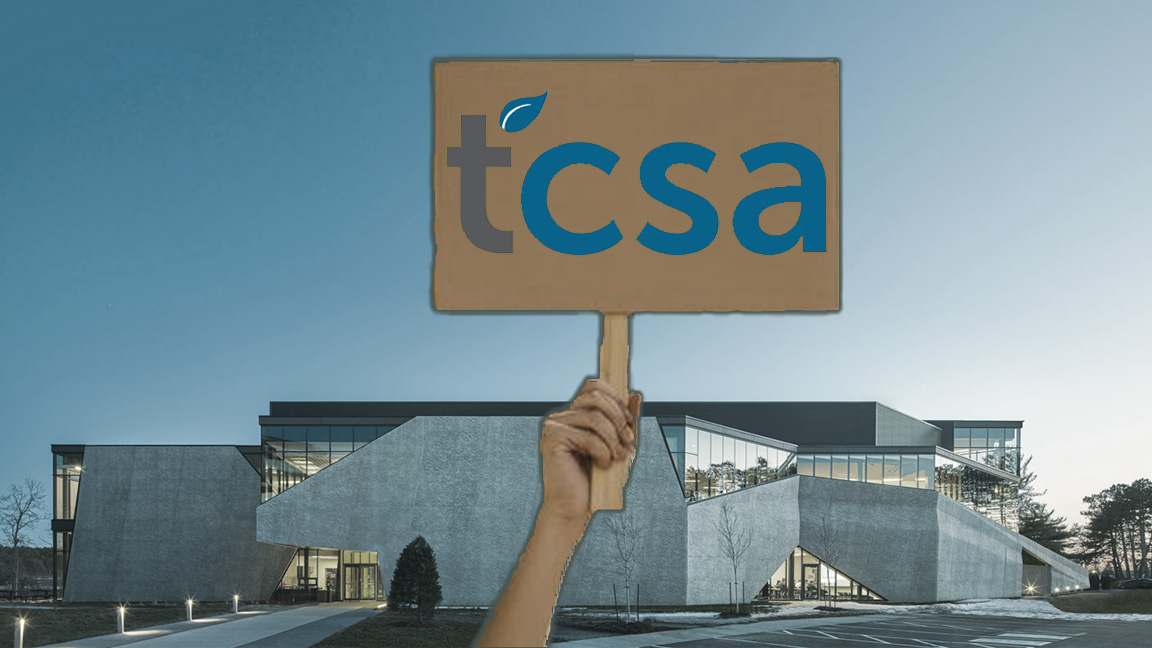It’s TCSA election time (again). You may remember that the TCSA hosted an election this past Spring, in fact we here at Arthur had our very own referendum question (thank you to everyone who helped it pass), however, not all of the TCSA Board positions were filled. So let’s talk about elections and student government, again.
The TCSA Spring Elections are the big student politics event of the year, the TGSA (Trent Graduate Student Association) also host elections around this time of year but they are a rather smaller affair. The TCSA elections are an opportunity for people to run for executive positions, equity commissioner Board positions, and for referendum questions to be posed.
However, student politics has a problem. Apathy. And not just at Trent.
You may be reading this knowing you didn’t vote in the Spring, or are now just realising that you could have run. In the recent Spring elections only 18.63% of students voted with no question or candidate receiving more than 1,700 votes in total. To put this into perspective, Trent had 9,460 undergraduates in the 2021/22 academic year.
In previous years the TCSA have failed to meet quorum (the number of votes required to have a valid election) causing a number of referendum questions to pile up in the following years. It is evident that the referendum questions brought in a large number of voters last year with the most votes received by one executive candidate being just 1,529 and the most voted upon question receiving 1,681 votes. However, looking at the TCSAs statistics on voting it is clear that the excitement of referendum questions quickly wore off for many students with question one concerning enrollment in the TCSA health benefit plan receiving 1,681 votes and the final question regarding the off-campus housing fee only getting 1,588 (although it was not the question with the fewest votes!).
Another significant problem in the recent elections was the lack of candidates for executive and commissioner positions, all seven people elected ran unopposed, therefore receiving their positions by default. This lack of competition reduces democratic elections to mere formality. This is not to say that the current execs and Board members are unworthy of their roles, but rather it speaks to a larger issue of disinterest. I believe there is something to be said about the impact of the pandemic on student government as many students missed out on the opportunity to feel involved in their campus community and thus did not develop the desire to be a campus leaders.
The TCSA has had an apathy problem for a number of years. In 2021, less than 10% of students voted in the spring elections. During a recent project here at Arthur we worked with the TCSA to find questions and statistics from previous elections going back to 1995 (the year the TCSA was established). During this we noted that there were a number of occasions in which quorum was not met with most years not exceeding a 20% voter turnout.
And most worryingly, these statistics do not even take into account the much smaller Fall elections which see an even smaller turnout each year.
You may now be wondering, if apathy and lack of competition is the name of the game, why bother getting involved. Well, the TCSA and their Board have a number of opportunities to make real change. As an equity commissioner you are the representative for the student body and have the ability to be their voice. As per the TCSA role descriptions commissioners also “run at least one (1) awareness campaign or one (1) event pertaining to their portfolio per year.” Commissioners also sit on the TCSA Board of Directors, attend monthly meetings and sit on a number of committees pertaining to student life at Trent.
Fundamentally, if you are interested in the student experience and making it better or holding Trent to account for the benefit of students then the TCSA is a way to make this happen.
The current open positions are:
- Queer Students Commissioner
- Racialized Students Commissioner
- Students with Disabilities Commissioner
- Environment & Sustainability Commissioner
- Gender Issues Commissioner
- Part-Time Students Commissioner
A Statement from TCSA President, Zoe Litow-Daye: “Being a student leader is an excellent way to make a change on campus. Our commissioners tackle issues big and small in their role and are an essential part of equity, diversity, and inclusion both within the TCSA and the campus community. Commissioners receive support from both our executive team and Board Resource Manager to run campaigns and initiatives relevant to their portfolios. We hope to engage students with opportunities to be campus leaders throughout the year starting with our 2022 Fall By-Elections.”
To close out this article, I want to let you know how you can get involved and help fight our apathy problem. Firstly, if you are interested in running for any of the open positions then make sure to register before September 30 2022. You can drop by the TCSA office (2.15 Student Centre) to talk to the team if you have any questions. If student government isn’t for you then you can do the most important thing and make sure to use your vote during the voting period October 10 - 14 2022. Go to trentcentral.ca for more info or follow @thetcsa on Instagram to keep up to date!


.png)


.jpg)


.jpeg)



.jpg)


.jpg)









.png)